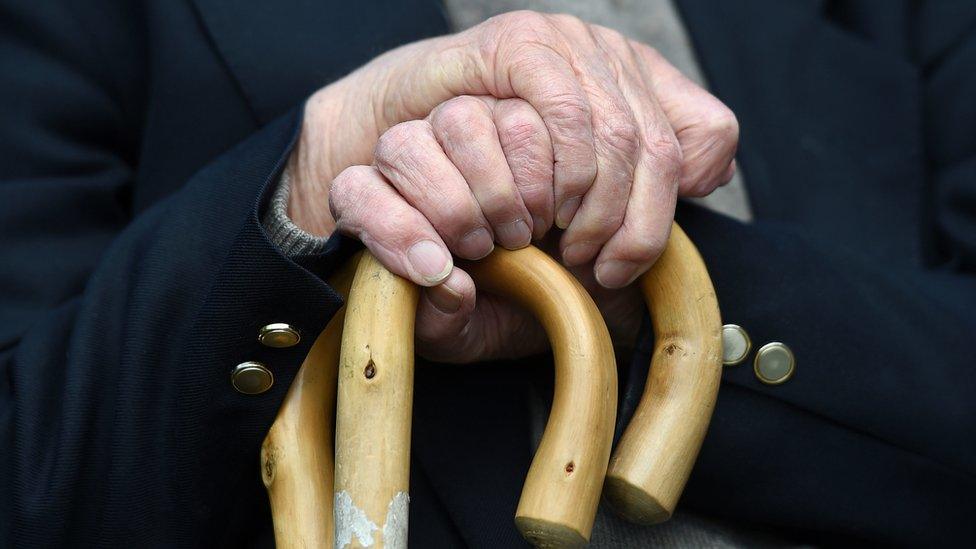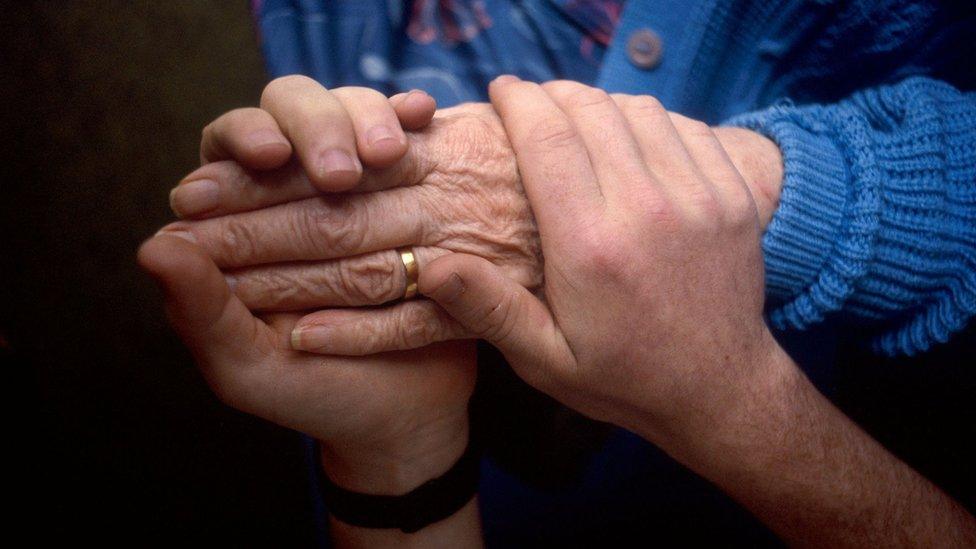Ethics of assisted dying in Jersey reviewed by experts
- Published

Assisted dying proposals are due to be debated by Jersey politicians next year
An ethical review by medical law experts into assisted dying (AD) proposals in Jersey has been published.
The report builds on the States Assembly "in principle" decision that AD should be permitted in the island.
The three experts looked at ethical questions, ranging from who would be eligible for AD, to issues such as conscientious objections.
The Council of Ministers hopes the issue will be debated by the end of summer 2024.
The medical law experts looked at ethical questions from seven different areas relating to AD when considering their review:
Eligibility criteria
Approval routes
Timeframes
Conscientious objection and discussions with patients
Mode (the AD procedure)
Appeals process
Certifying cause/manner of death
Much of the review focuses on eligibility.
It said adults in Jersey seeking AD eligibility fell into one of two categories; those who are "terminally ill", and those with "unbearable suffering".
The experts said after taking many reasons into account, they concluded proposals for AD for those with a terminal illness were "ethically appropriate".
However, they had "serious reservations" about allowing AD for those with "unbearable suffering", deeming the term too vague.
They concluded AD proposals in such circumstances, "are not ethically appropriate."
'Suicide tourism'
The review panel also looked at whether AD should be limited to Jersey residents, to avoid Jersey becoming a "suicide/death tourism" destination.
They said while this might generate income and meet the needs of those who live where AD is illegal, "we suspect the case for restricting access to residents is stronger".
Age eligibility was also considered, with the review concluding that AD should be restricted to adults.
But, it added, if AD for children is to be considered, the views of children themselves would need to be sought.
'Conscientious objection'
The issue of the right to conscientious objection to AD by healthcare professionals (HCPs) was another area in the ethical review.
The report said HCPs "should have the right to conscientiously object to direct participation in AD, not least because AD is a controversial practice, which does not serve the usual aims of medicine to heal/cure".
However, it said this right should not be extended to those not-directly involved in AD, such as receptionists or drivers.
The ethical review was undertaken by three experts who hold a range of views on assisted dying, made up of:
Prof Richard Huxtable, professor of medical law and ethics at the University of Bristol
Prof Trudo Lemmens, professor and school chair in health law and policy at the University of Toronto
Dr Alex Mullock, senior lecturer in medical law at the University of Manchester.
Minister for Health and Social Services, Deputy Karen Wilson, said: "I would like to thank the authors of the review for their work.
"This review will ensure that States Members are sighted on the range of complex ethical and moral considerations associated with these proposals.
"Over the coming months the government will be working to progress the States Assembly's 'in principle' decision, and lodge the detailed proposals in the new year."

Follow BBC Jersey on X (formerly Twitter), external and Facebook, external. Send your story ideas to channel.islands@bbc.co.uk, external.
Related topics
- Published31 October 2023

- Published3 October 2023

- Published25 November 2021

- Published28 April 2023
